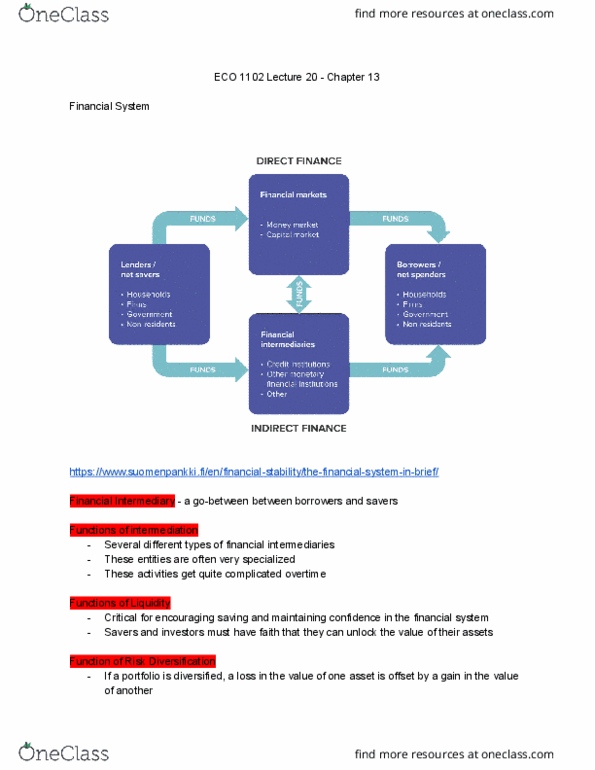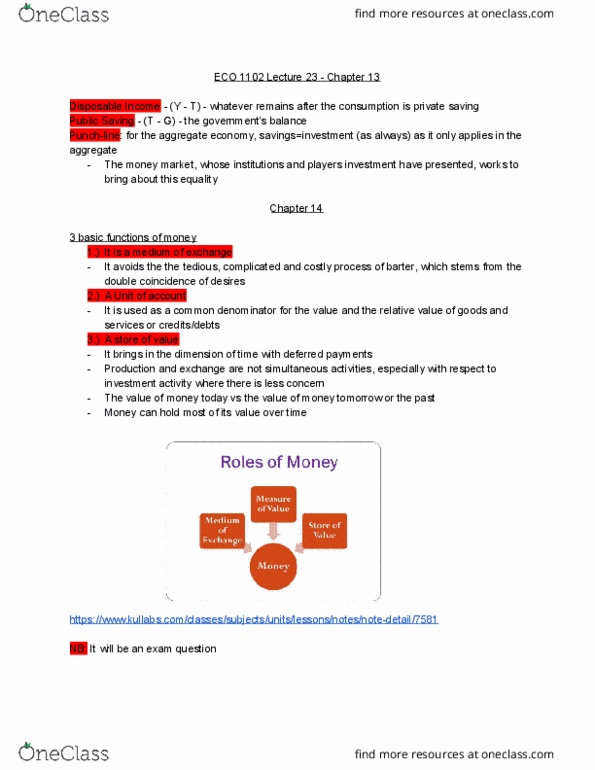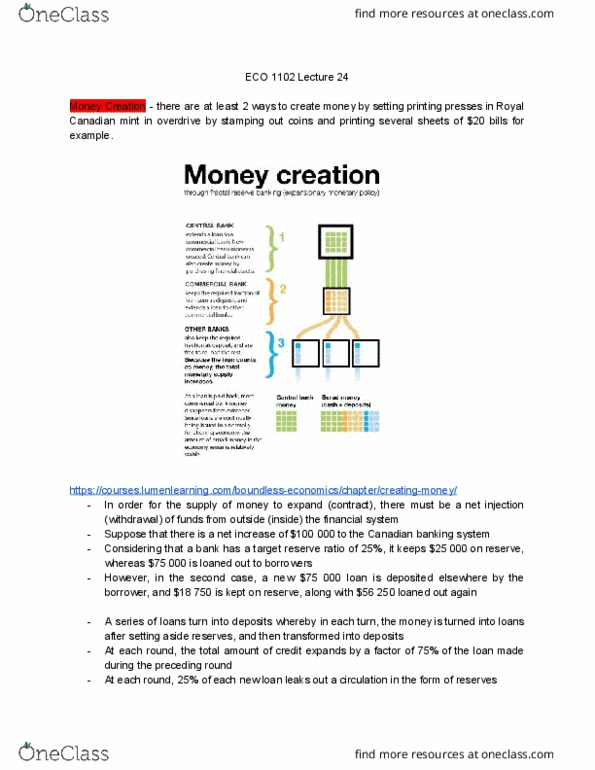ECO 1102 Lecture Notes - Lecture 23: Barter, Hyperinflation, Excess Reserves
ECO 1102 verified notes
23/26View all
Document Summary
Disposable income - (y - t) - whatever remains after the consumption is private saving. Public saving - (t - g) - the government"s balance. Punch-line : for the aggregate economy, savings=investment (as always) as it only applies in the aggregate. The money market, whose institutions and players investment have presented, works to bring about this equality. It avoids the the tedious, complicated and costly process of barter, which stems from the double coincidence of desires. It is used as a common denominator for the value and the relative value of goods and services or credits/debts. Production and exchange are not simultaneous activities, especially with respect to. It brings in the dimension of time with deferred payments investment activity where there is less concern. The value of money today vs the value of money tomorrow or the past. Money can hold most of its value over time https://www. kullabs. com/classes/subjects/units/lessons/notes/note-detail/7581.




